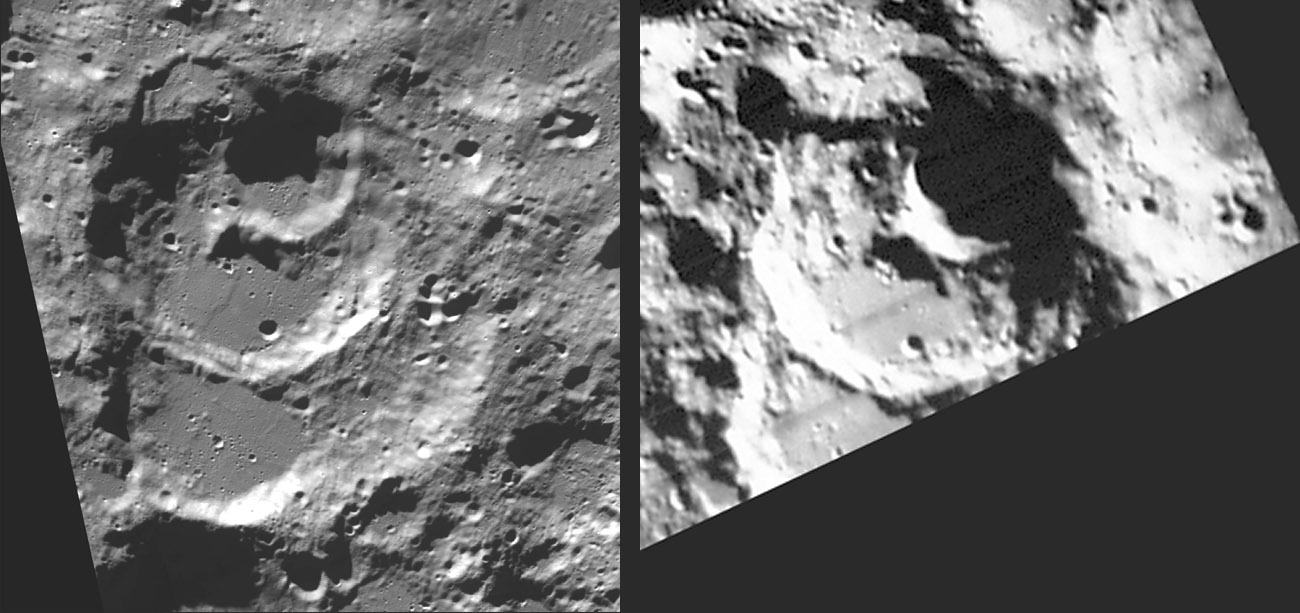
left image from Clememtine and right from Lunar Orbiter IV-154-H2
This is a repeat of the August 6, 2006 LPOD - re-enjoy!
Issac Newton was perhaps the finest mathematician and scientist ever (although something of a alchemist and religious kook) so it seems dreadfully unfair that his lunar crater is so far south that it is hard to see. Adding more insult is that the nature of the crater has been uncertain, especially before the polar views of orbiting spacecraft. While looking at the Clementine image of the south polar region I realized that Newton, the crater, has a split personality. Or maybe even more than two. The Clementine view (left) shows a complex superposition of craters. There is a broad, old rim at bottom right, which is cut by a smooth-floor crater to bottom left. That crater has been impacted by another slightly larger one, also with a smooth floor, which has another crater on its upper rim. And then, one of the most remarkable sights I’ve ever seen on the Moon, a crater that seems to have been sheared in half. This unnamed feature - which I will call Half Crater - must have had its bottom half collapse, but the a shadow makes it impossible to see on the Clementine view where it has gone. The opposite lighting of the Lunar Orbiter image suggests some complexity that could be the fallen crater (there is even a hint of the left rim). I don’t understand why Half Crater is so sharply and evenly cut in half. The younger crater to the right should have nicked off just the edge of Half Crater, not the whole thing. This is a new discovery, at least for me, and makes me yearn for the release of SMART-1 and future images of this area!
Technical Details:
The Clementine mosiac comes from the USGS Map-A-Planet website, and the Lunar Orbiter from LPI.
Related Links:
Rükl chart 73
A telescopic view
Yesterday's LPOD: Ring the Bell II
Tomorrow's LPOD: Ebay NASA
COMMENTS?
Register, Log in, and join in the comments.



